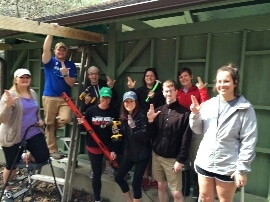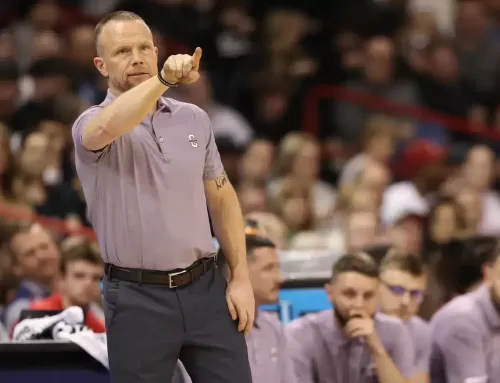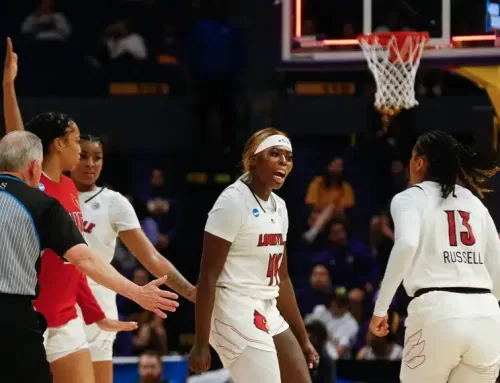While many students were relaxing on the beach or sleeping in at home, a number of students decided to give back during their spring breaks. Three different groups of students went to three different cities and volunteered their time to help the local community.
A group of 25 students from the Interfaith Center went to Birmingham, Ala. Andrew Tursic said their mission was to partner with Habitat for Humanity and “help strengthen the Interfaith Center.”
The Student Involvement Office sent two groups to two different sites: Asheville, N.C. and Washington D.C. In Asheville, students worked closely with the local YMCA to help provide services to families and children in the area. One of the programs was a bus that comes once a week full of fresh food.
“Anyone, with no questions asked, can grab a paper bag and fill it with food they will need for the week,” said freshman Caroline Miller.
In addition to the free food, there are cooking demonstrations in the back of the bus to help educate the families.
On another day, the group of six students and one graduate student played with children in various obstacle courses, such as rock climbing. Miller said it helped give the children a break from the routine of school and home life and got them out into nature.
It was not all fun and games for the group: on Monday the YMCA put them to work to help build a shelter to cover the two tractors. The tractors are used for maintaining the YMCA’s own garden.
While the Asheville group was playing with children and building barns, the students who went to Washington, DC were learning about food and controlling where excess food goes. Freshman Savanah Treece and a handful of other students studied a food program around Georgetown’s campus to learn about the successful program.
The Georgetown program takes excess food from campus kitchens and redistributes it to the homeless, afterschool programs for children and cooking demonstrations for helping educate families on how to eat healthier.
“It was an amazing experience. There aren’t words to describe it,” said Treece.
The students went to various sites and had hands-on learning with many of the programs, which Treece said, “You become more passionate about it” when you are learning that way.
Treece said that students spent the entire car ride home brainstorming on the most effective ways to start a similar food program on campus and the city as a whole.
The first step appears to be contacting dining services and also determining where the project can receive funding, but Treece said she is “very optimistic” that the program can be a success in the community.
Photo courtesy / Caroline Miller





